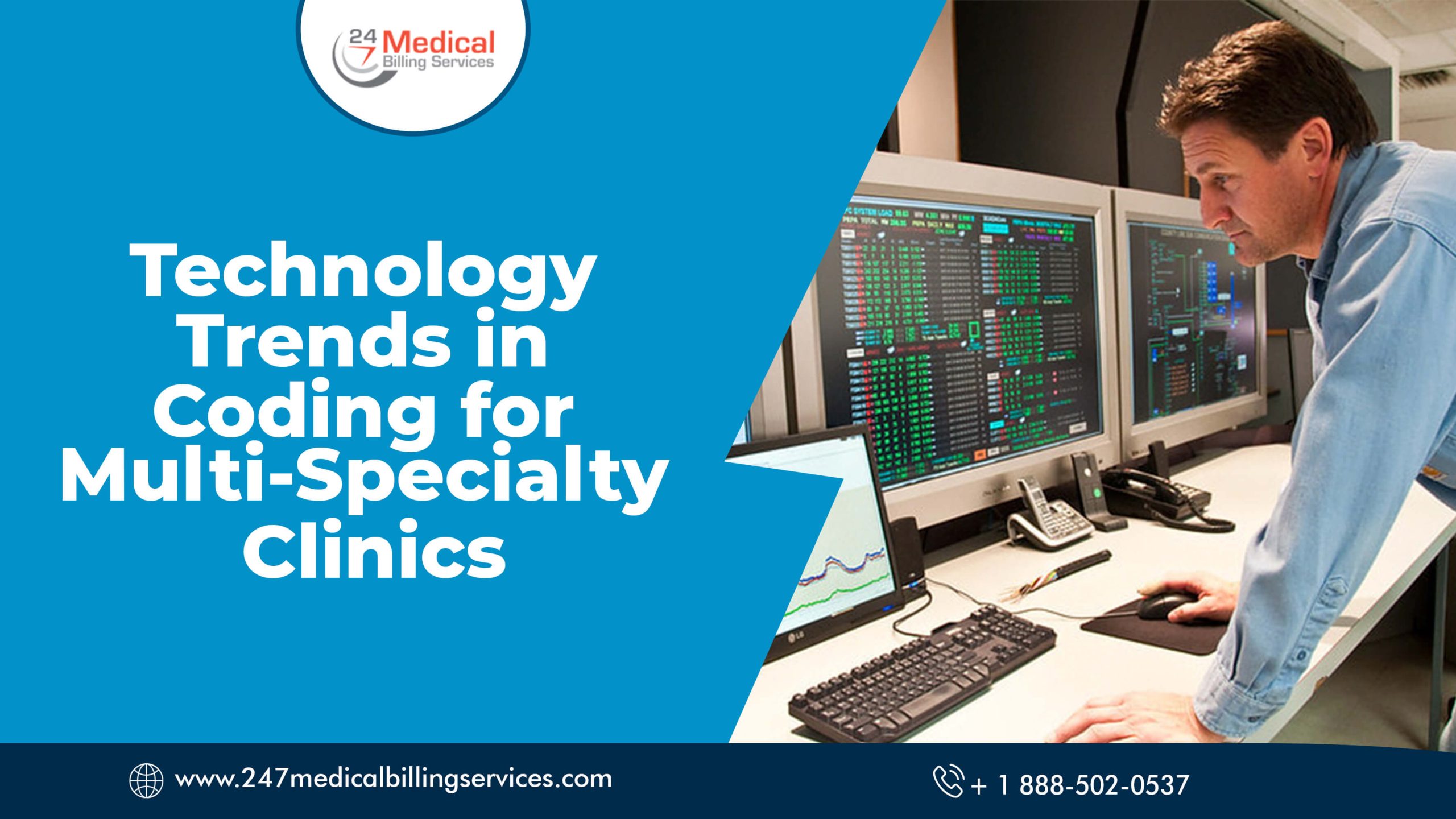
Technology Trends in Coding for Multi-Specialty Clinics
In today's ever-evolving healthcare landscape, multi-specialty clinics are at the forefront of providing comprehensive medical care. These clinics offer a wide range of specialties under one roof, catering to diverse patient needs. While multi-specialty clinics excel at delivering high-quality healthcare, they also face unique challenges in medical billing and coding due to the complexity of their services.
Efficient and accurate medical coding is critical for multi-specialty clinics. It ensures proper reimbursement, compliance with regulations like the Health Insurance Portability and Accountability Act (HIPAA), and an overall streamlined revenue cycle. To meet these challenges, multi-specialty clinics are embracing technology trends that are transforming coding practices. In this blog post, we will explore some of the latest technology trends in medical billing and coding for multi-specialty clinics and how 24/7 Medical Billing Services is leading the way.
Artificial Intelligence (AI) and Machine Learning
Artificial Intelligence (AI) and Machine Learning (ML) are revolutionizing the healthcare industry, and medical coding is no exception. Multi-specialty clinics deal with an extensive array of medical conditions and treatments, making accurate coding a complex task. AI and ML algorithms can analyse vast amounts of medical data, identify patterns, and assign the correct codes efficiently.For example, an AI-powered coding system can recognize specific medical procedures across various specialties and apply the corresponding codes accurately. This not only reduces the workload for coders but also minimizes the risk of human error.
24/7 Medical Billing Services understands the importance of AI and ML in medical coding for multi-specialty clinics. By leveraging these technologies, they ensure that coding is not only faster but also more precise, ultimately leading to improved revenue and compliance.
Natural Language Processing (NLP)
In multi-specialty clinics, medical records often contain detailed clinical narratives and physician notes. Extracting relevant information from these unstructured narratives for coding purposes can be challenging and time-consuming. This is where Natural Language Processing (NLP) comes into play.NLP technology can analyze and understand human language, allowing it to extract crucial data from clinical notes and reports. It identifies essential details, such as diagnoses, procedures, and patient demographics, and maps them to the appropriate codes.
24/7 Medical Billing Services employs NLP to streamline coding processes for multi-specialty clinics. By automating the extraction of vital information from narratives, NLP enhances accuracy and reduces the time required for coding, ultimately benefiting both clinics and patients.
Telehealth Integration
The COVID-19 pandemic accelerated the adoption of telehealth services across the healthcare industry. For multi-specialty clinics, integrating telehealth into their practice has become crucial. However, coding for telehealth visits presents its own set of challenges.Technology trends now involve coding for telehealth services efficiently. Multi-specialty clinics must ensure that they accurately code virtual consultations to maximize reimbursements and maintain compliance with regulatory requirements.
24/7 Medical Billing Services stays up-to-date with telehealth coding updates, assisting multi-specialty clinics in coding telehealth visits accurately. By integrating telehealth coding seamlessly into their services, 24/7 Medical Billing Services ensures that multi-specialty clinics can continue providing quality care in both physical and virtual settings.
Electronic Health Records (EHRs)
Electronic Health Records (EHRs) have become the backbone of modern healthcare. They store patient information, medical histories, test results, and treatment plans, making them essential for accurate coding.Integrating EHRs with coding processes is a technological trend that enhances efficiency. When coders have real-time access to patient records through EHRs, they can code more accurately and consistently. This reduces errors and ensures that coding is aligned with the latest patient data.
24/7 Medical Billing Services recognizes the importance of EHRs in coding for multi-specialty clinics. Their expertise in optimizing EHR systems ensures that clinics can streamline coding processes and improve overall efficiency.
Blockchain for Data Security
Data security is a top priority in healthcare, especially with the increasing number of cybersecurity threats. Multi-specialty clinics handle sensitive patient information, and safeguarding this data is paramount.Blockchain technology is being explored as a solution to enhance data security in healthcare. It offers features such as data immutability and secure access control, making it a robust option for protecting patient records and billing information.
24/7 Medical Billing Services is committed to data security. They implement advanced blockchain solutions to safeguard patient data and ensure HIPAA compliance. By leveraging blockchain technology, multi-specialty clinics can trust that their patients' information is protected against unauthorized access and cyberattacks.
Conclusion
As multi-specialty clinics continue to play a vital role in providing comprehensive healthcare, staying updated with the latest technology trends in coding is essential. Embracing artificial intelligence, machine learning, natural language processing, telehealth integration, electronic health records, and blockchain technology can lead to improved coding accuracy, increased revenue, and enhanced data security.24/7 Medical Billing Services stands at the forefront of these technological advancements, helping multi-specialty clinics navigate the evolving coding landscape. With their expertise, clinics can focus on providing high-quality care while ensuring that their coding practices remain efficient and compliant with industry standards.
In an era where technology is reshaping healthcare, multi-specialty clinics and their coding partners must embrace these trends to thrive and continue delivering exceptional patient care. By doing so, they ensure that their coding practices remain efficient, accurate, and aligned with the ever-changing healthcare landscape.
See also: Prior Authorization Outsourcing: Streamlining Healthcare Approvals

.png)